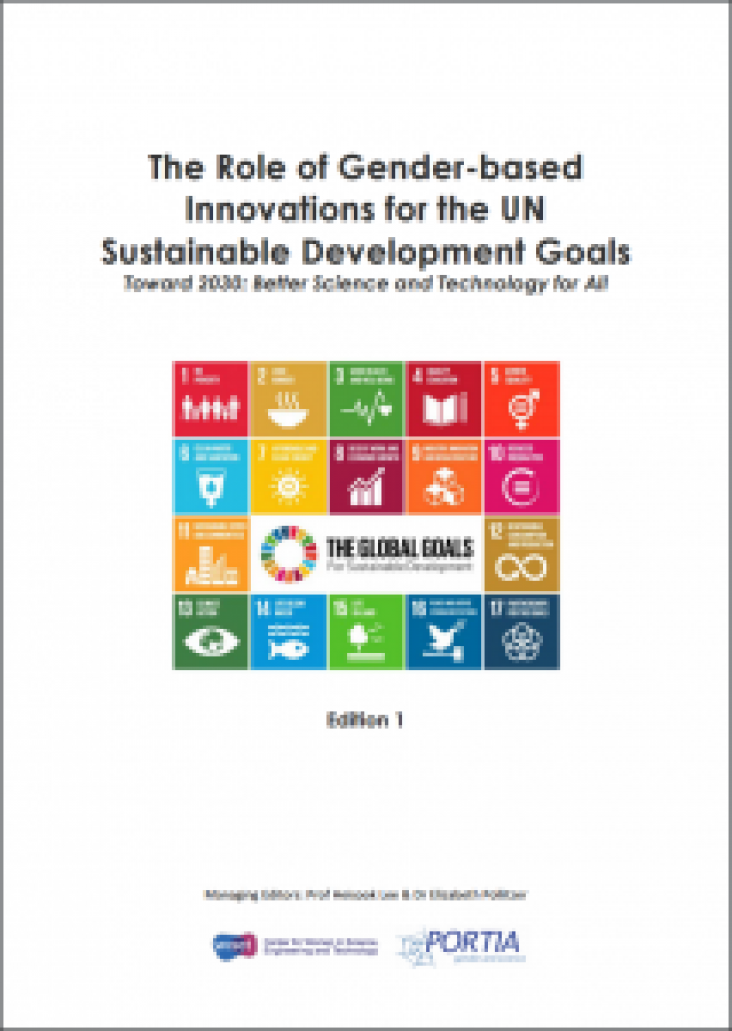In the UK, gender pay gap reporting legislation will require large employers to publish their overall mean and median gender pay gaps from 2018. XpertHR highlights its useful tools including frequently asked questions relating to unequal pay, and legal guidance on the new legislation. The Regulations contribute to advancing SDG 10.4 to adopt policies, wage and social protection policies to progressively achieve greater equality.

The Elsevier Foundation is committed to advancing SDG 5 and has developed a 3-year strategic partnership with Portia, an organisation that women and men have the same opportunities for engagement and advancement in science. Building on research drawn from recent Gender Summits, Portia will advance sex-gender sensitive research, innovation, development and deeper understanding through a series of annual SDG reports and the creation of a Gender Summit Consortium.
As part of the UK Government’s Women in Finance Charter, 72 firms have agreed to publish progress on gender equality annually, ahead of gender pay reporting Regulations in 2017. Sixty firms in the UK have committed to having at least 30% of women in senior roles by 2021. Thirteen finance companies are aiming to have complete gender parity in senior roles by 2021. These steps directly align with SDG 10.4 to adopt policies, wage and social protection policies, to progressively achieve greater equality.
This chapter advances goals 3 and 5 by examining the biological and social reasons women are disporportionately affected by mental health issues. It advocates for a gender-based approach to mental health programs to help women with the unique set of challenges they face.
This article advances SDGs 3, 5, and 16 by providing a broad overview of global violence aginst women and highlighting the difference health professionals can make for women who experience violence in its multiple forms.
This article advances SDGs 3, 5, and 16 by demonstrating how gender power inequalities are at the root of sexual violence against women and outlining ways to prevent sexual violence and mitigate the mental and physical health impacts of rape.
There have been various ways on how to address the practice of violence in a spousal environment. Linked to SDGs 3 and 5, this chapter presents an approach to violence that is split into three paths, namely physical, psychological and sexual violence. Psychological violence includes stalking, financial abuse and social isolation. However, the authors emphasise that these are just categories of study and analysis and in real life, they coexist within aggression.
Spousal violence carries within itself a set of consequences that go beyond bruises, hematomas or other physical injuries. However, very little attention has been given to the psychological impact of spousal violence due to a generated common idea that violence is only serious when it leaves bruises or exposed fractures. Furthering SDGs 3 and 5, this chapter emphasises the impact that violence represents in terms of mood, anxiety and even post-traumatic stress.
Contributing to SDGs 3 and 5, this chapter discusses how spousal violence interventions must be interdisciplinary, integrated, and coordinated to be effective and avoid secondary victimisation.
Nordic countries are the most gender equal countries in the world, but at the same time they have disproportionally high prevalence rates of intimate partner violence (IPV) against women.
